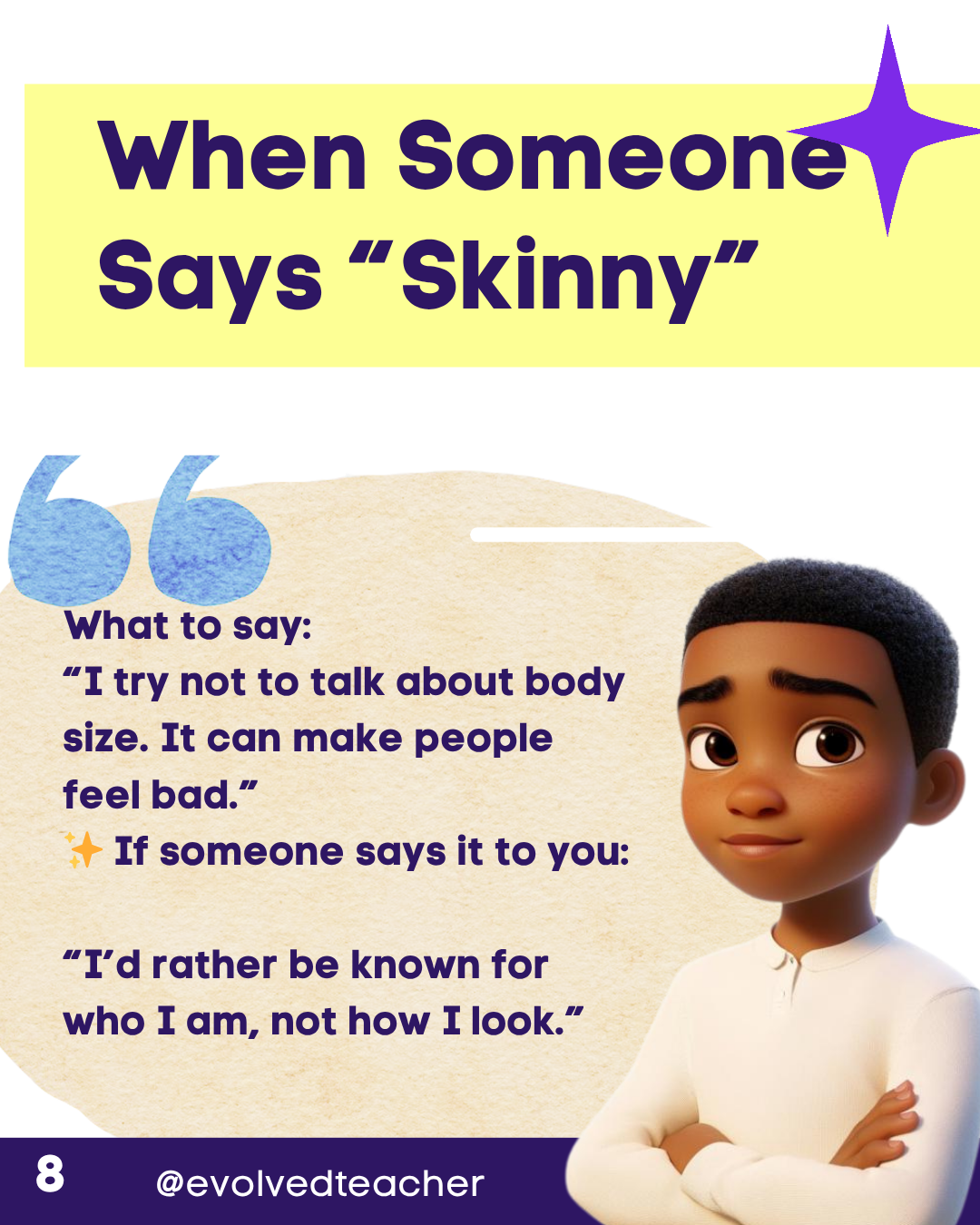Not all compliments feel kind. Let’s talk about “skinny.”
Jun 13, 2025
I began this series as a fast way for educators and families to empower the vocabularies and self-esteem of their young ones.
We know that words can hurt, heal, or help, so we take them one at a time, giving our kids a daily moment to pause, reflect, and speak with more love.
Today’s word? “Skinny.”
It may sound like a compliment. But for some children, it stings.
Let’s dive in 👇

I remember teaching at a Mindvalley conference in Barcelona a few years back, and one of the main insecurities shared by the tween and teen boys in my group shocked me—not because it was unfamiliar, but because I knew that feeling too well.
Many of the boys shared that they felt inadequate for being too skinny.
They talked about trying to overeat, obsessing over their size, and constantly comparing themselves to boys and men with bigger muscles. They thought “being skinny” meant “being less.”
And oddly enough, I was able to connect with them deeply because I’ve been there.
Growing up, I didn’t like being thin. I used to eat extra carbs in high school hoping to gain weight, but nothing stuck. I felt unseen. Like my body was something to fix.
So when we say things like:
“You’re so skinny!”
“Why are you so small?”
We may mean well, but that doesn’t mean it feels good.
Even kind-sounding words can make someone feel exposed, uncomfortable, or ashamed.
This is especially true for boys, who often feel pressure to “look strong,” or for kids, of any gender, who are struggling with food or body image silently.
Instead of commenting on how someone looks, we celebrate who they are.

Age-Based Talking Tips:
👶🏽 Ages 3–5:
“We don’t talk about other people’s bodies. Everyone is special the way they are.”
👧🏽 Ages 6–8:
“Some people get called ‘skinny’ or ‘fat,' but those words can hurt. Let’s focus on being kind.”
🧠 Ages 9+:
“Words like ‘skinny’ can feel like pressure. Even if we think it’s a compliment, we don’t know how someone feels inside.”
What to Look For:
Here are signs that your child may be affected, directly or indirectly, by comments about body size like “skinny”:
1. They comment on other people’s size, positively or negatively.
“He’s so small.”
“She looks sick.”
“I wish I was that skinny.”Even “compliments” can signal early body comparisons.
2. They avoid activities or clothes that draw attention to their body.
Some kids may wear oversized clothing or avoid sports or swimming because they feel “too small” or exposed.
Please don't think your child is too young to show signs. I've seen this is children as young as 5 years old!
3. They express a desire to gain weight unnaturally.
Phrases like:
“I need to eat more so I don’t look like a stick.”
“I wish I had muscles like them.”
“I want to bulk up so people stop saying I’m skinny.”
4. They brush off compliments or seem uncomfortable receiving them.
If they respond to “You’re so skinny!” with silence, laughter, or deflection, it might not feel good to them.
5. They compare themselves to others in subtle ways.
“He looks stronger than me.”
“Nobody else has arms like mine.”
“I’ll never grow like that.”
Recognizing these signals helps us support children not only in what they say, but in how they feel about themselves.
One thing I really want to highlight here is the way the young people hear you talk about YOUR BODY. Be careful of the way you criticize how you look in front of them.
Every body is a good body. Kindness is the goal.
Have the challenge sent directly to your inbox here: https://www.evolvedkid.com/freebies


